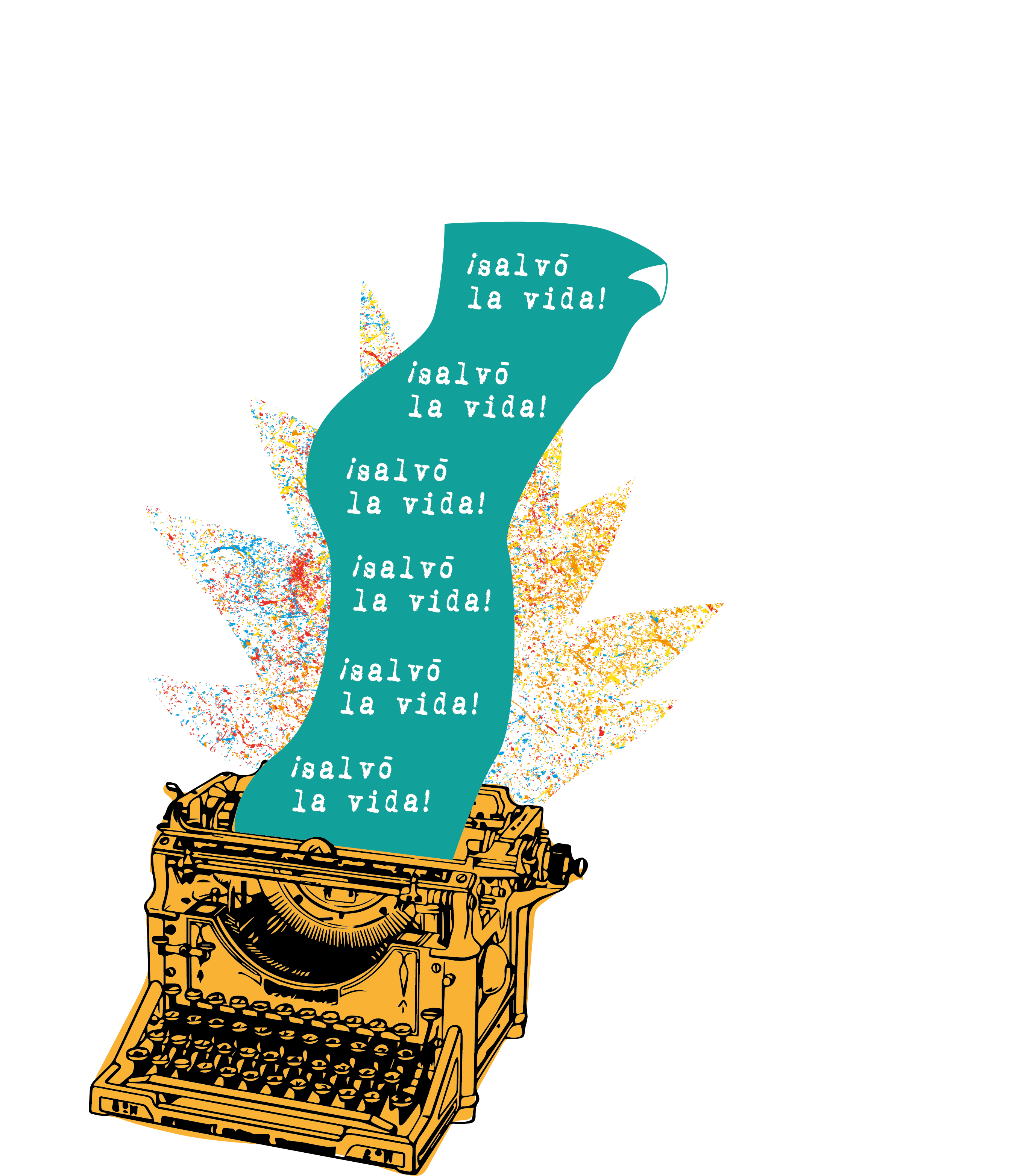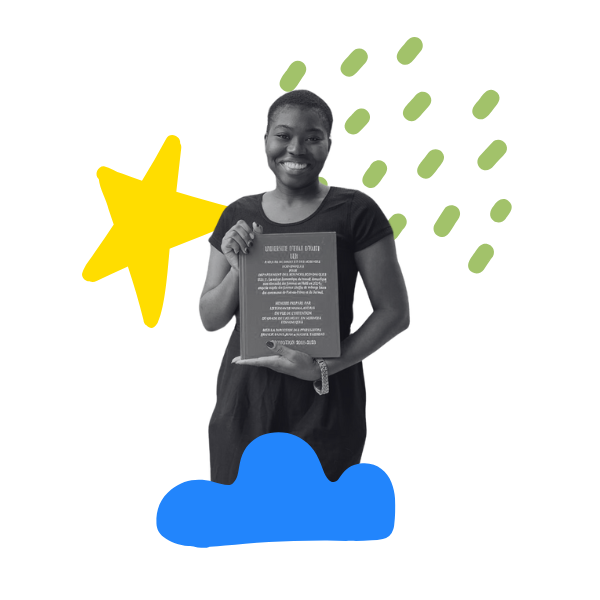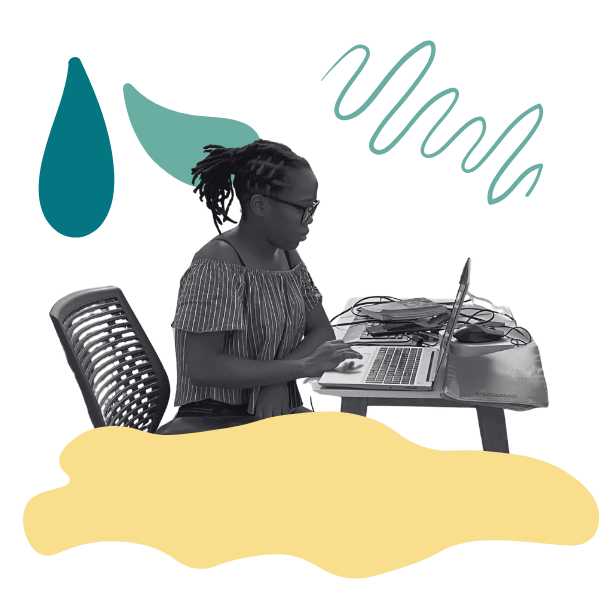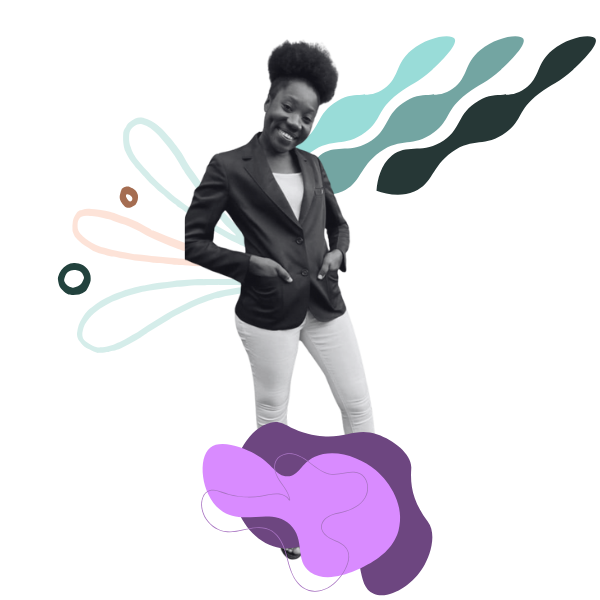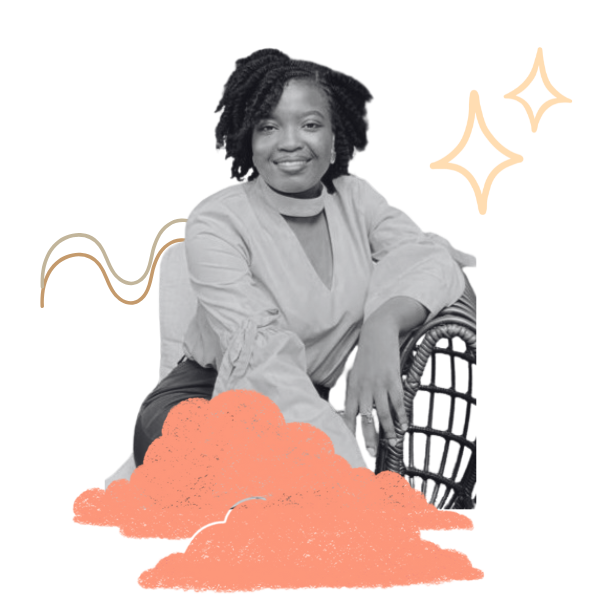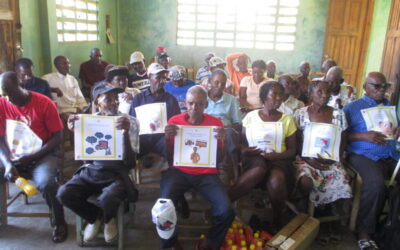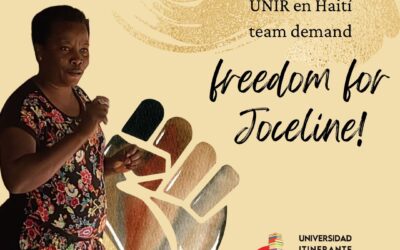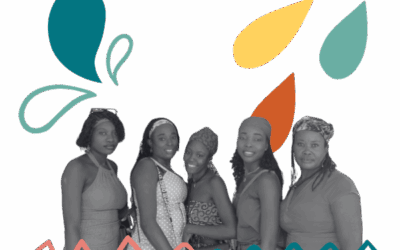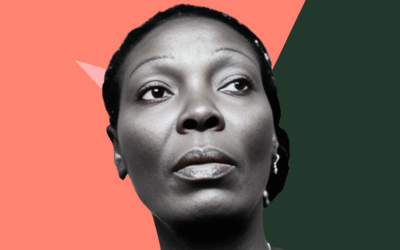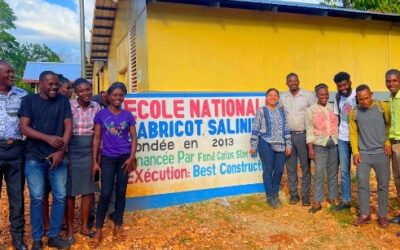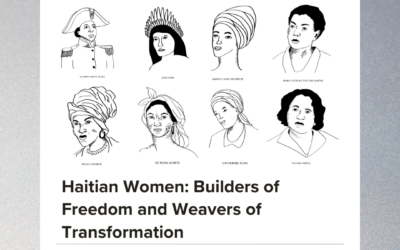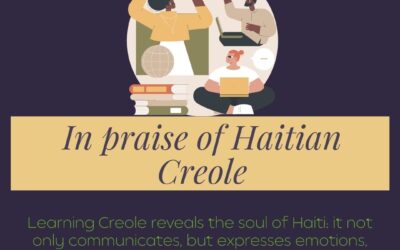To occupy the world with our knowledge, our bodies, our words.
What is the FAM YO LA program?
Fanm Yo La (We Women Are Here) is a space within UNIR in Haiti that has emerged to reaffirm, once again, the living and transformative presence of women in all areas of our work. Through the activities carried out in this space, we contribute to making visible the knowledge and leadership of women in Haiti, while also occupying—dignifiedly—the space of participation that rightfully belongs to us.
FANM YO LA is also a pedagogical act, a celebration of life, and a shared will to inhabit the world with our knowledge, our bodies, and our voices.
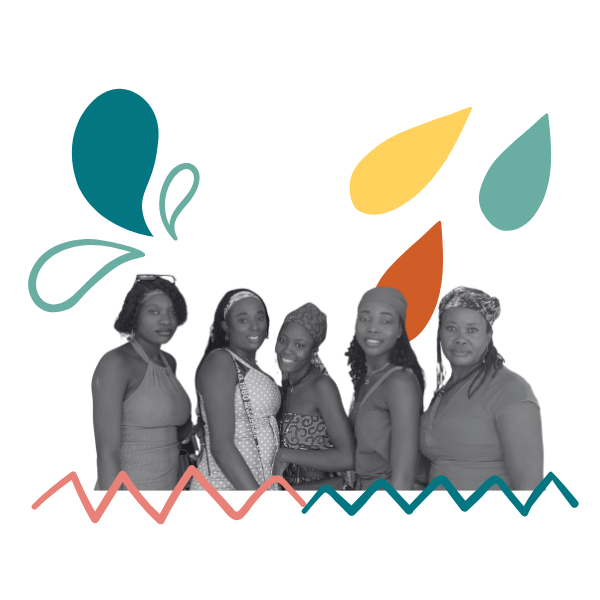

Why is this space called FANM YO LA?
The choice of our name Fanm Yo La, which in Haitian Creole can be translated into Spanish as “las mujeres estamos presentes” (“we women are here”), was a collective decision full of meaning.
FANM YO LA is both a declaration and a demand.
It is a declaration because it boldly states: despite having been historically made invisible by society, we are still here, contributing and building.
And it is also a demand because we say: we are here, we exist, and society must listen to us and take us into account.
What led us to create this space?
From the very first year of work at UNIR-Haiti, we witnessed a double absence: the absence of women in training processes, and the absence of spaces designed specifically for them. These absences reveal structural barriers that exclude women from participation and leadership.
Fanm Yo La was born as a concrete response: to pave the way, to create presence, and to strengthen the voice and power of women in all the spaces where decisions are made and where society is built.

Comité Fanm Yo la
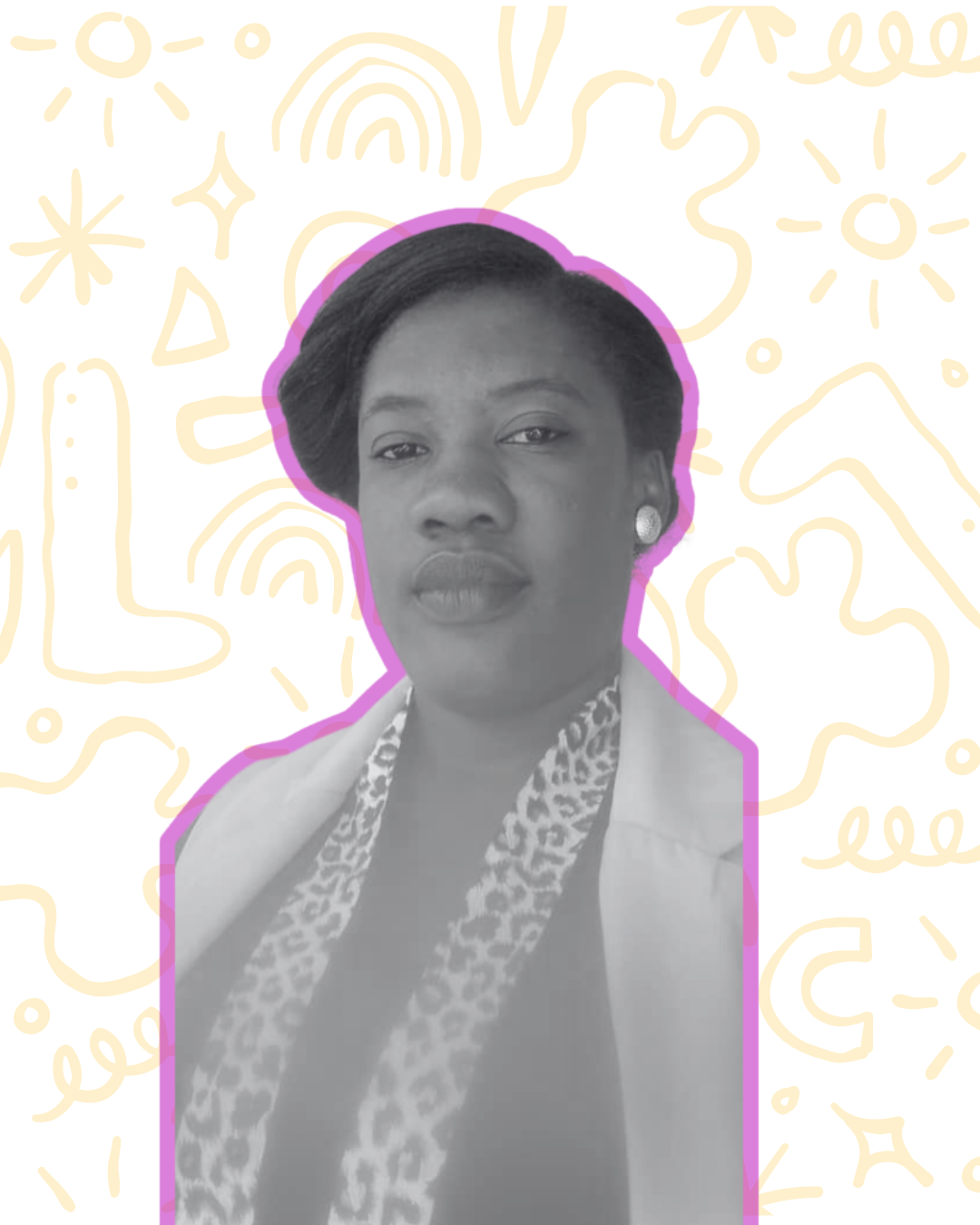
Francinie Jacques
Trained in agroecology, she is now a Spanish teacher in three communities in northern Haiti.
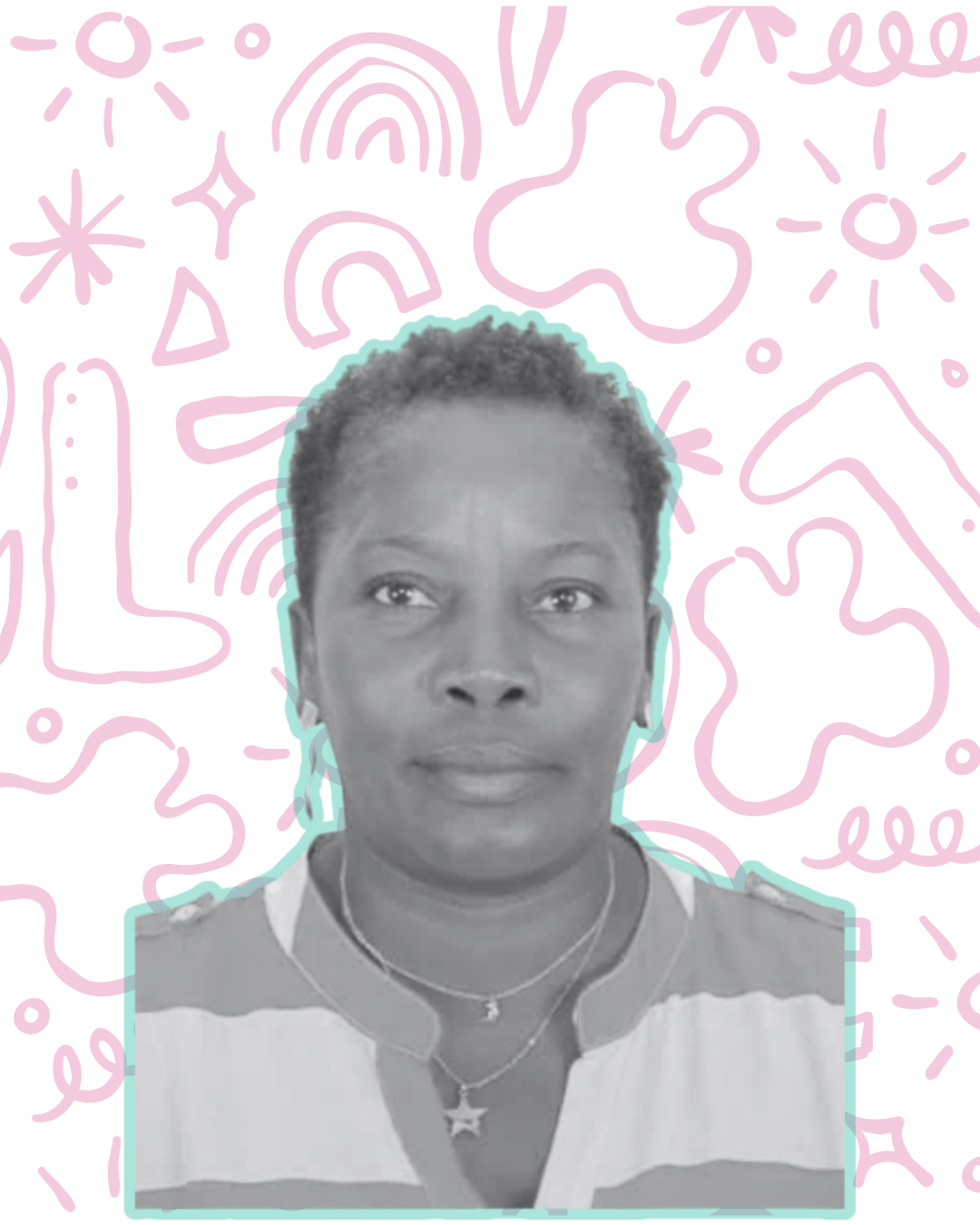
Joceline Irene
She is an activist with the organization Ti Plante, whose goal is to recover land for collective farming.
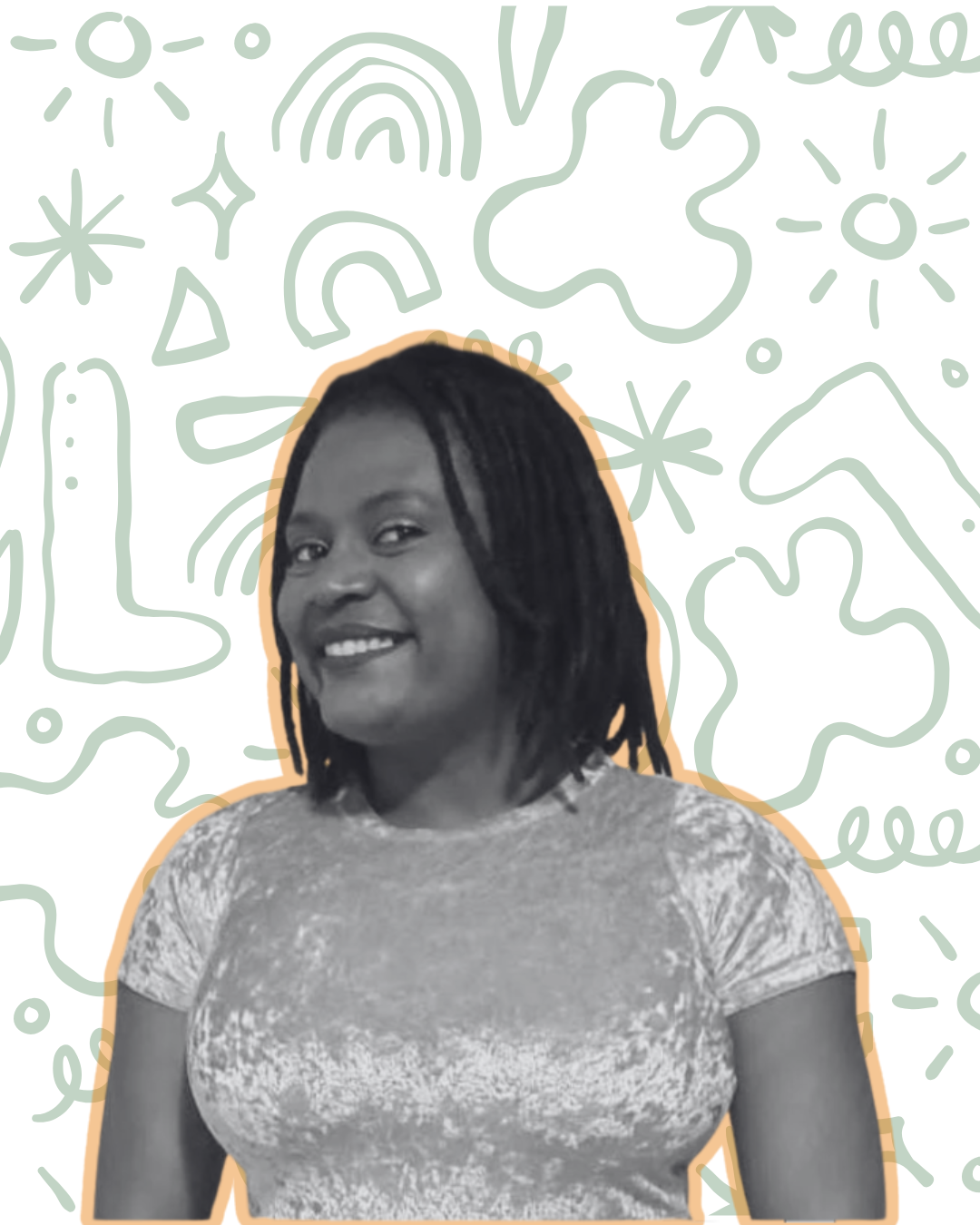
Denisse Charles
Founder of the Fanm Yo La scholarship and member of the feminist organization Danto, she is a social worker currently pursuing higher education in Canada.
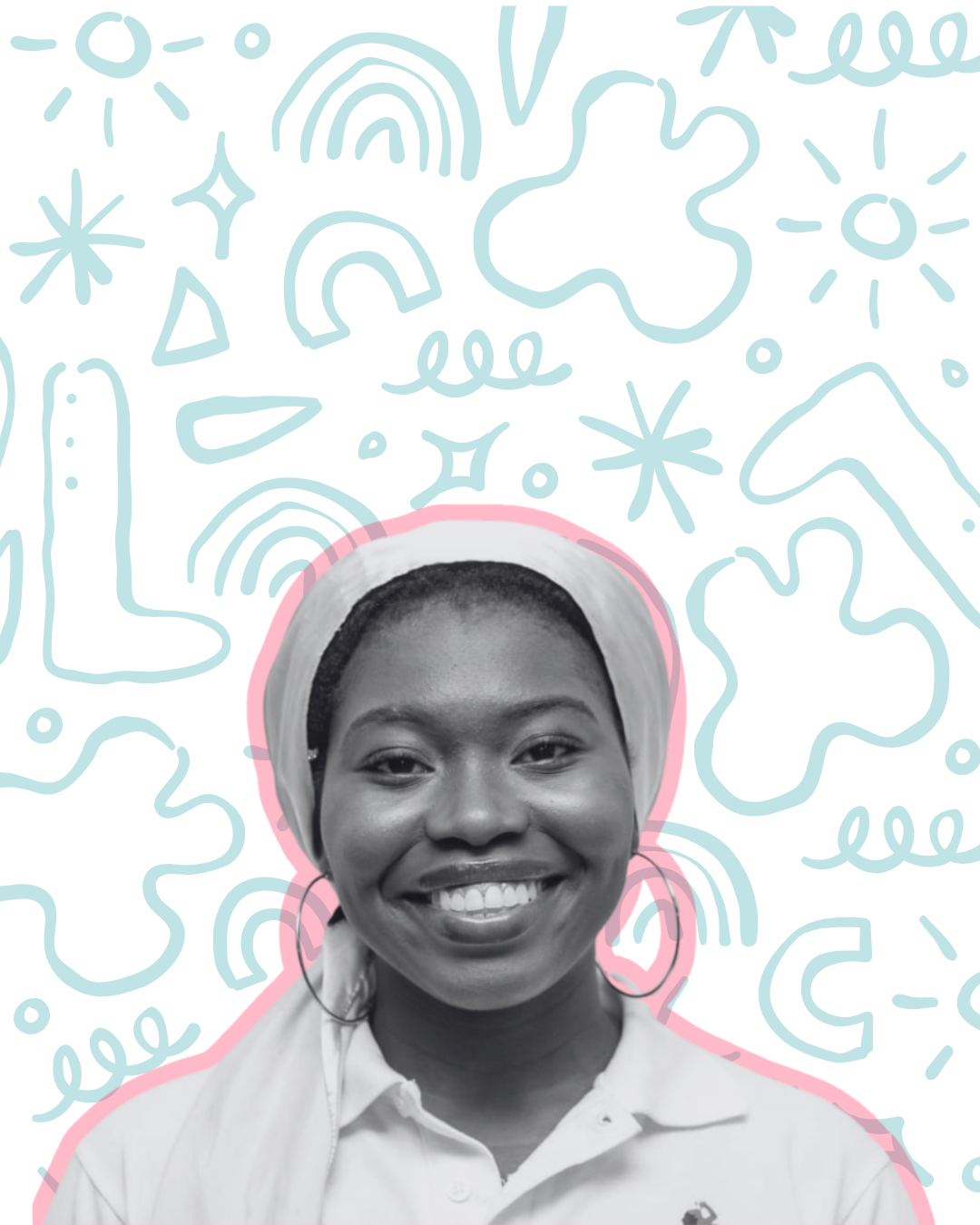
Andris Naima
She studied economics and founded Eco-Detay. She is a feminist activist within the organization Nègès Mawon and a recipient of the Fanm Yo La Scholarship for the year 2024.
Tools, activities, and exchanges
Caribbean Feminist Domino Game
It is an educational and political training tool that recognizes the contributions of Caribbean women in the struggle for equity and justice.
Each domino piece features the face of an important woman, and the game offers a dynamic way to learn about their lives and legacies.
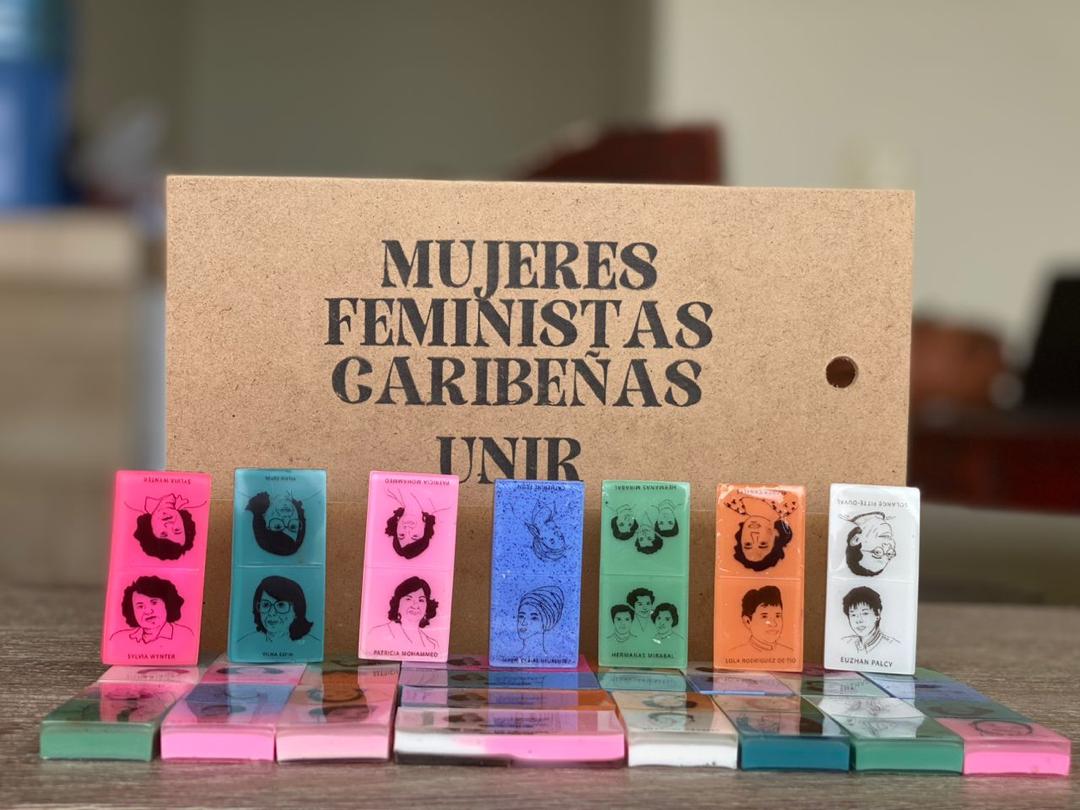
Fanm nan batay Podcast (Women in the Struggle)
A captivating series that gathers the powerful testimonies of the tireless and passionate work of women across Haiti—especially those who, from the most remote corners, rise in defense of their land.
Their everyday lives, marked by constant struggle, reveal how, despite the challenges, they continue to weave hope and work relentlessly for their communities.
Through stories of resilience, resistance, and triumph, their transformative voices resonate—empowering women and sharing their strength with the world.
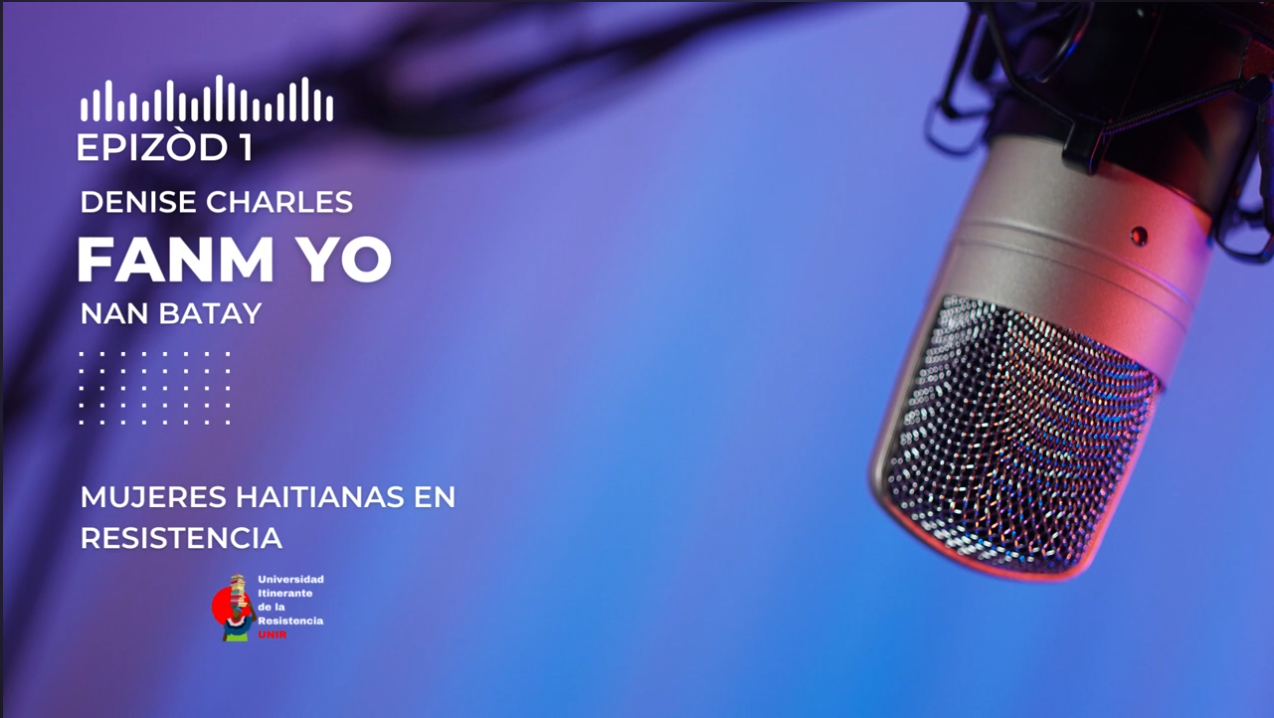
Sonia Pierre School
The Sonia Pierre School is an initiative proposed by GLEFAS, which to date has held seven editions, all of them in the Dominican Republic. UNIR in Haiti has participated in three editions of the School, organizing and accompanying delegations made up of various Haitian social organizations, with the aim of strengthening their presence and engagement in these spaces for political education.
The School seeks to create a collective space for political formation that enables participants to develop a critical and decolonial perspective on the historical processes of the Caribbean and our Latin American region. Its purpose is to draw common lines of action toward an agenda of Caribbean, Black, maroon, and grassroots resistance and struggle.
As part of our commitment to this initiative, we have begun preparations for the first edition of the Sonia Pierre School in Haiti, scheduled for July 2025.
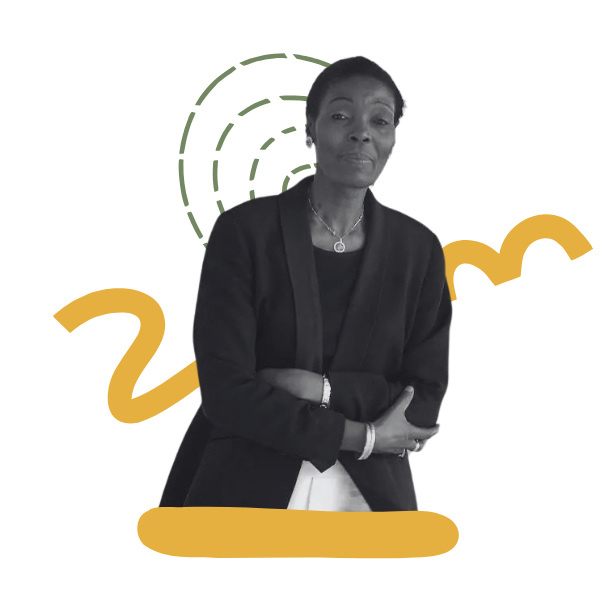
Fanm Yo La Scholarship
The goal is to encourage women’s participation in knowledge production and to promote research on peasant communities, agroecology, and gender.
These scholarships aim to provide the material and academic conditions necessary for recipients to carry out their research and complete their university degrees.
Video-letters
Faced with multiple barriers—such as distance, language, and invisibilization—that make it difficult for Haitian women and women from Abya Yala to connect, we launched this communication initiative to bring our voices, our struggles, and our resistance closer together.
50 questions about mining: Popular education in Haiti
Read the complete article at the Yes to Life, No to Mining website, clicking on the following link: https://yestolifenotomining.org/uncategorized/haiti-50-preguntas-sobre-la-mineria/
Joceline: Defending the Land and Surviving to Tell the Tale
In northern Haiti, a female agronomist and community advocate is facing criminalization for caring for the land. When the Caribbean sun begins to warm up Terrier-Rouge, in northeast Haiti, Joceline is already in the field. Her gait is firm, though fear has been her...
Scholarship FANM YO LA
Where are the women? We live in an era where the gender gap has been considerably reduced. However, recent reports warn that, at the current pace of progress, it will take 134 years to achieve full gender parity, that is, until the year 2158, within five generations....
Scholarship Fanm Yo La
Where Are the Women? We live in an era where the gender gap has significantly narrowed. However, recent reports warn that, at the current pace of progress, it will take 134 years to reach full gender parity—that is, until the year 2158, five generations from now....
First Edition of the Sonia Pierre School in Haiti: Caribbean Thought, Anti-Racist Struggle, and Decoloniality
The Latin American Group for Feminist Education and Action (GLEFAS), the Itinerant University of Resistance – UNIR in Haiti, the Institute for Diversity, Equity and Inclusion (IDEI), and the feminist organization Marijàn (OFMA) are excited to announce the first cohort...
UNIR-Haïti’s Network Grows: New Partnership with École Nationale Abricot in Salinière
UNIR-Haïti’s Network Grows: New Partnership with École Nationale Abricot in Salinière For the first time, UNIR-Haïti has signed a collaboration agreement with École Nationale Abricot, located in Cap Rouge, a communal section deeply committed to transformative...
Haitian Women: Builders of Freedom and Weavers of Transformation
Looking back at Haitian history, we recognize that resistance did not begin with the Revolution. Long before that milestone, indigenous women were already defending -from the depths of their roots- dignity, freedom and territory. These women were not mere observers;...
In praise of Haitian Creole
By Claudia Alavez As someone who has learned Haitian Creole as a second language, I have discovered that this language goes far beyond simple communication; it is an open window into the soul of Haiti and its daily life. This language not only conveys words, but...
ITINERANT UNIVERSITY OF RESISTANCE IN HAITI REPORTS 2020-2022
REPORTS 2020-2022
Because even when we are far apart, shared words bring us together…
We invite you to watch these first video letters and to add your own.
Join the Resistance
Stay connected with us. Follow us on social media and be part of the change.
